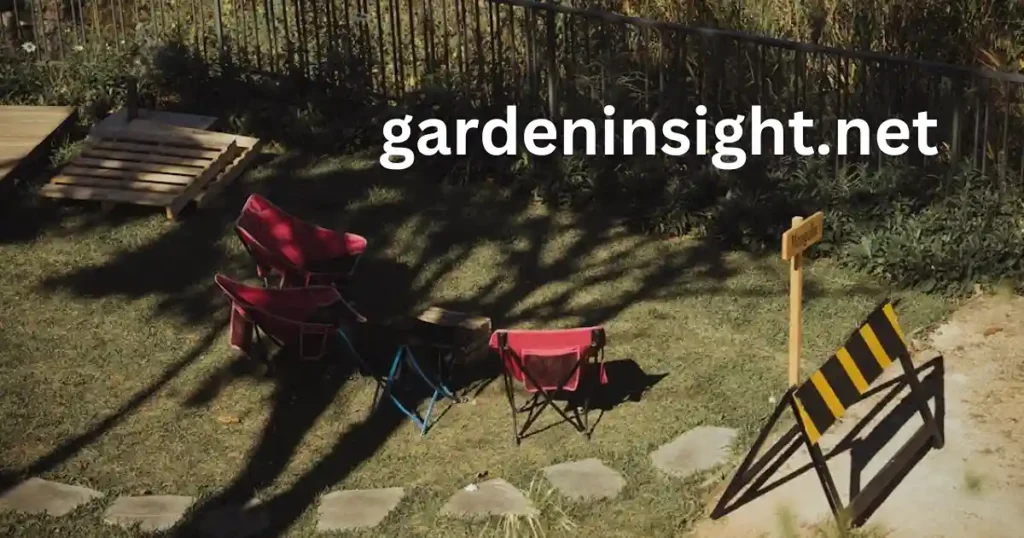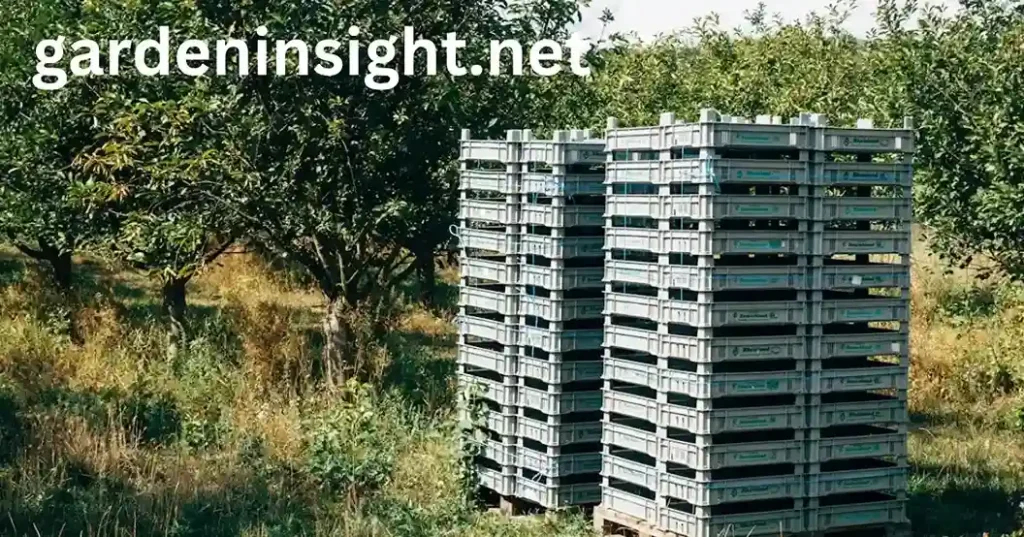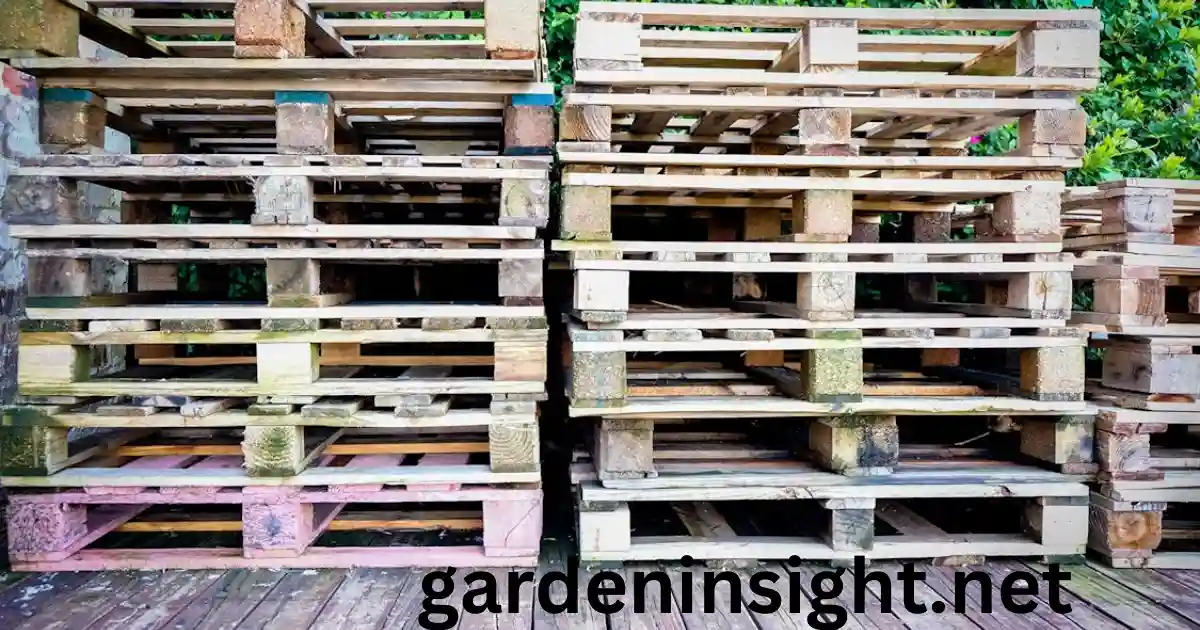Heat treated pallets are popular choices for DIY gardening projects due to their durability, eco-friendliness, and affordability. However, not all pallets are safe for gardening, especially those treated with chemicals. Let’s explore why heat treated pallets may be a safe option, how to recognize them, and tips to ensure the pallets you use benefit your plants without any harmful effects.
What Are Heat Treated Pallets?

Heat treated pallets are wooden pallets that have been treated with heat to eliminate pests and pathogens, following international standards set by the International Plant Protection Convention (IPPC). This treatment is an alternative to chemical methods and involves heating the wood to a specific temperature, usually around 132.8°F (56°C) for at least 30 minutes, which effectively kills any pests.
Benefits of Using Heat Treated Pallets in Gardening
- Non-Toxic Treatment: Unlike chemically-treated pallets, heat treated ones do not carry any harmful chemicals, making them safer for growing plants.
- Eco-Friendly: Heat treatment is a sustainable option as it doesn’t release harmful substances into the soil.
- Durability: Heat treated wood often withstands weather conditions better, making it ideal for gardening projects.
How to Identify Heat Treated Pallets
To ensure the pallets you choose are heat treated, look for the “HT” stamp on the wood. This stamp, typically located on the pallet’s side, indicates the pallet has undergone heat treatment. Be wary of pallets labeled with “MB,” which stands for methyl bromide, a chemical treatment that can be toxic to plants and harmful for gardening.
Which Pallets Are Safe for Gardening?
Not all pallets are created equal, and some are specifically designed for purposes that may not be compatible with gardening. Here’s a guide to help identify safe pallets for gardening:
| Pallet Type | Safe for Gardening? | Treatment Type | Identification Stamp |
|---|---|---|---|
| Heat Treated | Yes | Heat | HT |
| Chemically Treated | No | Methyl Bromide | MB |
| Untreated | Sometimes | None | None or unmarked |
| Recycled Pallets | Possibly | Varies (Check for HT) | HT, if marked |
Heat treated pallets are safe to use, while chemically treated pallets (marked “MB”) are unsafe due to the potential for chemical leaching. Untreated pallets might be safe, but it’s best to verify their history and origin to ensure they haven’t been exposed to harmful substances.
Can Heat Treated Pallets Get Wet
While heat treated pallets are designed to withstand some moisture, prolonged exposure to water can cause them to rot or develop mold. It’s best to provide drainage or keep them slightly elevated to avoid water pooling around them. This is especially important if the pallet structure is placed directly on soil, as constant dampness can weaken the wood over time.
How Does Moisture Affect Heat Treated Pallets?
Although the heat treatment process strengthens the wood against pests and diseases, it does not make it completely waterproof. Over time, excessive moisture can seep into the wood, causing it to rot or develop mold.
How to Prevent Water Damage on Heat Treated Pallets
- Keep Pallets Elevated: Use bricks or stands to raise pallets from the ground, which helps prevent water buildup.
- Apply a Non-Toxic Sealant: Using a garden-safe sealant creates a protective layer that reduces the risk of water absorption.
- Install Drainage: If using pallets as planters, add proper drainage to prevent water from pooling around the wood.
Storing Wet Heat Treated Pallets
If heat treated pallets get wet, allow them to dry out fully in a well-ventilated area before reusing them. Ensuring they are dry prevents mold and mildew buildup, keeping them safe for continued garden use.
Storing Heat Treated Pallets Outdoors

Yes, heat treated pallets can be stored outdoors, but they will last longer with some precautions. Exposure to the elements can cause untreated or unprotected wood to deteriorate faster. Using a non-toxic wood preservative will help maintain the structural integrity of pallets used in gardening projects like raised beds, plant stands, or compost bins.
If you plan to keep heat treated pallets outside, consider applying a sealant or wood preservative to enhance their durability. This helps protect them from extreme weather, mold, and decay. Regular maintenance can extend the lifespan of pallets used in garden structures.
Tips for Storing Pallets Outdoors
- Elevate the Pallets: Place pallets on a platform to avoid direct contact with soil or puddles.
- Seal the Wood: Using a non-toxic wood sealant can protect against moisture and extend the lifespan of the wood.
- Inspect for Wear: Regularly check for signs of decay, mold, or pest activity.
While heat treated pallets are weather-resistant, taking precautions can enhance their usability and protect plants in the garden.
Possible Harmful Effects of Using Pallets in Gardening
Using pallets in gardening can offer practical benefits but also comes with risks. Let’s examine the most common potential harmful effects and how to address them effectively.
Chemical Exposure
Certain pallets, especially those marked with “MB” (indicating methyl bromide treatment), can release harmful chemicals that may leach into the soil. These chemicals can harm plants, soil quality, and even contaminate vegetables in your garden.
Solution: Always use heat treated pallets with the “HT” stamp, as they are treated with high heat instead of chemicals, making them safer for gardening use.
Moisture and Mold Issues
Moisture exposure can lead to mold and rot, which are common in pallets used directly on soil. This can impact both the structure of the pallet and the health of the plants.
Solution: Place pallets on a slightly raised platform or add a layer of gravel beneath them. Sealing the pallets with a non-toxic wood sealant can also protect them from excess moisture.
Pest Infestations
While heat treatment kills pests during manufacturing, long-term outdoor storage can make pallets susceptible to reinfestation by insects or other pests, potentially affecting nearby plants.
Solution: Inspect pallets regularly for signs of pests and clean them as needed. Using a mild, non-toxic pest deterrent can also help.
Table of Potential Issues and Solutions with Pallets in Gardening
| Potential Issue | Cause | Solution |
|---|---|---|
| Chemical Leaching | Use of chemically-treated pallets | Use “HT”-marked heat treated pallets only |
| Moisture and Mold | Prolonged exposure to wet conditions | Elevate pallets, apply non-toxic sealant |
| Pest Infestations | Outdoor exposure over time | Regular inspections, use pest deterrent |
Non-Toxic Pallets
Embrace sustainable gardening with non-toxic pallets, identified by the “HT” (heat treated) stamp, ensuring they’re free of harmful chemicals like methyl bromide (“MB”).
These versatile pallets can be repurposed into vertical gardens, raised beds, compost bins, and unique planters, adding both functionality and rustic charm to your outdoor space. Always inspect pallets for signs of chemical spills or damage before use. Prioritizing non-toxic pallets allows you to cultivate a thriving garden while minimizing your environmental impact and safeguarding your family’s health.
By opting for non-toxic pallets, you create a thriving garden that’s both beautiful and environmentally conscious.
Conclusion
Using heat treated pallets in your garden is a practical and eco-friendly choice. When properly identified and cared for, these pallets can serve various purposes, from raised beds to garden dividers.
Remember to check for the “HT” stamp, which assures they are free from chemicals and safe for planting.
With proper storage and occasional maintenance, heat treated pallets can be a valuable addition to any garden, providing a sustainable and safe foundation for healthy plant growth.
FAQs
Some of the frequently inquired questions regarding use of heat treated pallets are as follow:
Are heat treated pallets safe for vegetable gardens?
Yes, heat treated pallets are generally safe for vegetable gardens as long as they don’t contain chemicals. Look for the “HT” stamp to confirm they were treated with heat instead of chemicals.
Can heat treated pallets be stored outside all year?
Heat treated pallets can withstand outdoor conditions if they are protected with a sealant or regularly inspected for signs of rot. Raised placement from direct soil contact also helps prolong their lifespan.
What pallets are safe for gardening?
Heat treated pallets marked “HT” are safe for gardening, as they don’t contain harmful chemicals. Avoid pallets marked with “MB” as they were chemically treated and can leach toxins into the soil.
Can heat-treated pallets get wet?
While they can handle some moisture, prolonged exposure to water can lead to rot. Keeping pallets slightly raised or using them in well-drained areas minimizes water damage.
Are untreated pallets safe to use in a garden?
Untreated pallets may be safe but be cautious, as they may have been exposed to substances during transport. Verify that untreated pallets have not been contaminated before use.
